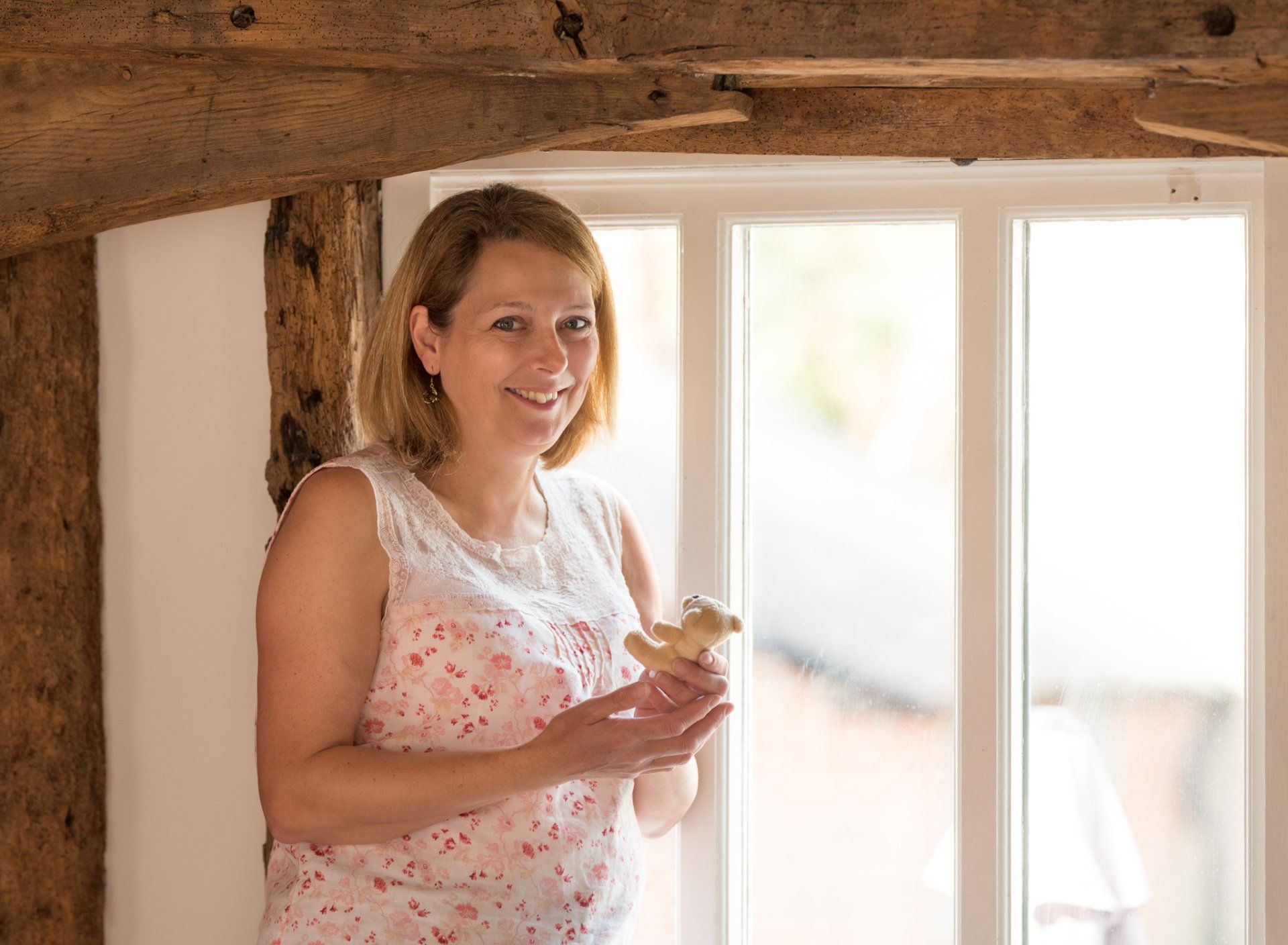Photographing 15 Faces of Baby Loss - Heather Sayers
Joanne Lewis • 10 October 2019
My pregnancy was classed as low risk
As a family photographer, I love documenting the journey from marriage to maternity and newborn photoshoots. But what happens when the baby doesn't come home?
As part of Baby Loss Awareness Week 2019, 15 amazing women from Hertford, Ware, Harlow, Sawbridgeworth, Bishops Stortford, Stansted Takely and local areas have allowed me to take their photos and share their stories, in their own words.
Today I'd like to introduce Heather Sayers, who went to the doctors with reduced movements, and was told everything was ok. The next day, they found out their first born son Flynn had died.

In March 2010 we received the heart-breaking news that our first baby would not be coming home with us. I loved being pregnant. I felt healthy and I enjoyed planning for our first baby; decorating the nursery, researching and buying equipment and attending the antenatal classes. Although I was nervous about giving birth and looking after a new born, my husband and I were both excited about all the
adventures we would have as a family of three.
My pregnancy was classed as low risk and some of the antenatal appointments were with my doctor, rather than a midwife. At around 38 weeks, I noticed that the baby’s movements had lessened. I had an appointment that day and I mentioned this to the doctor and she checked me and the baby and reassured me that all was OK. The next day I was still worried so we rang up the hospital and they told us to come in. And that’s when we found out that there was no heartbeat and that our baby had died.
We were devastated and in complete shock. How had this happened? Why had nobody told us that after 12 weeks, (the ‘magic’ number), you still aren’t guaranteed to take a baby home? One of my strongest memories of that day is getting back to the car and seeing the empty baby car seat on the back seat and realising that it would stay empty.
The delivery, 4 days later, was traumatic, both physically and emotionally. Our baby boy, Flynn, was born silently into the world. He was big, with perfect features and with his Daddy’s dimple in his chin. Our family visited and we all took a turn to cuddle him. Its difficult to make memories in such a short time but we took photos, made hand and feet prints and we have a precious lock of his dark, silky
hair.
We then had to somehow continue with our life. I felt absolutely lost; all my plans for the future were taken from me and I didn’t know what to do. I also felt guilty, thinking that I had let everybody down: my husband, my family and Flynn.
We were fortunate to have lots of support. We had bereavement counselling through the hospital which really helped us to talk through our loss and gave us strategies to cope with our grief. It was difficult for our family as they had to deal with their own grief from losing Flynn but they also had to try to help us. It must be terrible to see your children so unhappy and know that you can’t fix it. Our work colleagues were amazing and I always had somebody to talk to. Discovering SANDS was a great help. Talking to other people who knew exactly how I was feeling made me feel less alone and it gave me more hope for the future. These extraordinary women were coping in life, perhaps, in time, I
could?
For Flynn’s 1st birthday we got together with family and friends and did a sponsored walk to raise over £2000 for SANDS. We chose to walk 17km as, at the time, 17 babies were dying before, during or shortly after birth every day in the UK. (There has been some improvement since, but there are still 15 babies dying every day).
When I became pregnant with my daughter, the pregnancy was totally different. Although I was monitored more, I had lost an innocence and I was worried throughout. I came to dread the question from strangers, “is this your first?”
Luckily the pregnancy was shorter and our daughter, Isla, was born early, but healthy, at 34 weeks, (the consultant was not taking any chances!). I had the joy that a new born brings to life but it also made me aware of what we had lost, so I still had a roller coaster of emotions. Over time things became easier and Isla helped us to be more optimistic about our future.
Two years later I became pregnant again, but this time with identical twins. Whilst we were excited about the possibility of two babies to love, I knew from meeting other bereaved women at SANDS just how high the risk was. Again, I was monitored very well and two healthy girls, Bessie and Poppy, were born 3 days after what would have been Flynn’s 5th birthday.
The girls know that they have an older brother; we visit his grave and talk about him. Its sometimes difficult to answer their questions and they can’t understand why he can’t come back to life like the characters do in the Disney films they love to watch so much. They say that they love and miss their brother and I’m glad that they feel that they can talk about him freely.
The grief of losing Flynn will always be with us but it is a more gentle grief than in the early, all-consuming days. Certain dates, places and songs will bring back memories that sometimes take me unawares and I realise that, although my life with three children is hectic and fun, he’s never really far from my thoughts. There will always be a missing piece to our family jigsaw.
Flynn has taught us how precious life is and how important it is to support and to be gentle with each other. He will always be loved and remembered. I am the parent of four children, all of them with a cute little dimple in the chin...

I couldn't let Black Friday 2020 go by without some amazing deals for my wonderful and valued customers... I've missed you all so much this year, but have loved the few shoots I was able to squeeze in between lockdowns and Home Education. With all the optimism I can muster for next year (I am naturally a pretty positive person) I am offering some spectacular deals on vouchers for my Hertford Studio and outdoor or on-location sessions next year (packages may be given as gifts, but please confirm preferred locations around Hertfordshire and some parts of London, Cambridgeshire and Essex with me before booking).












